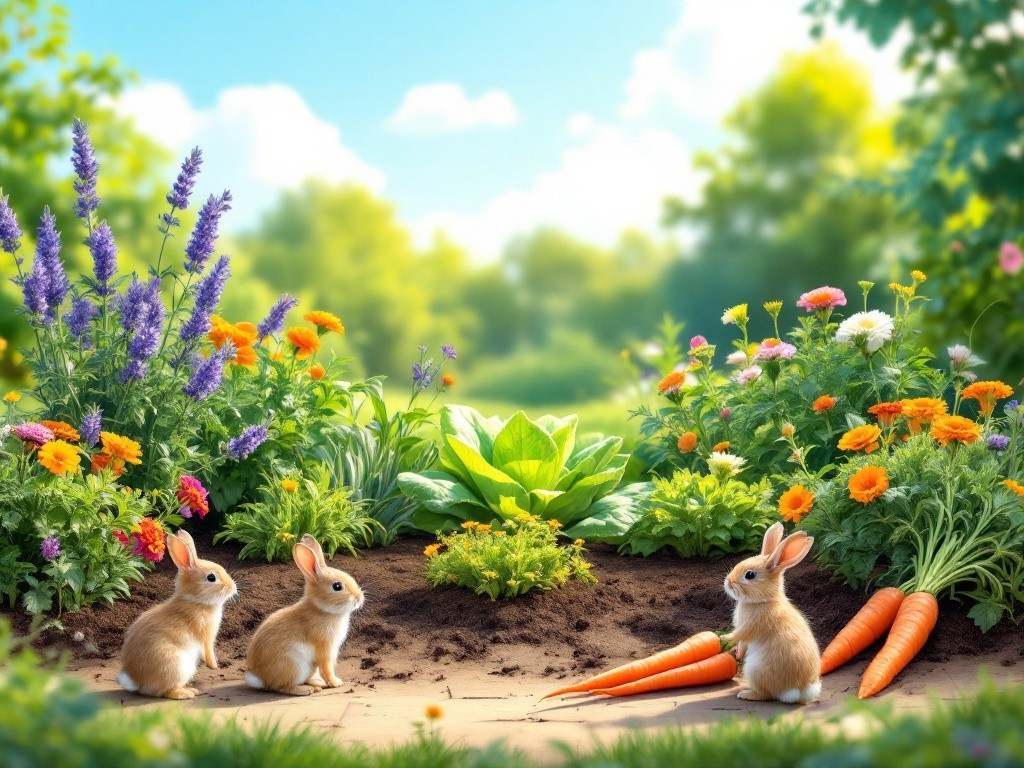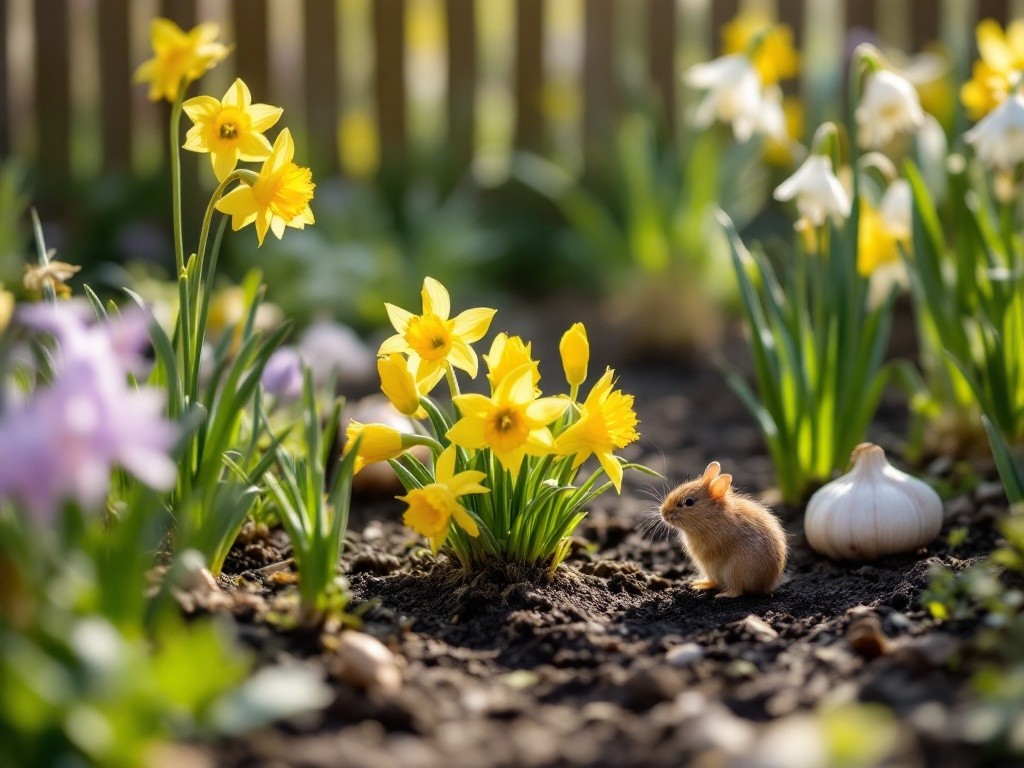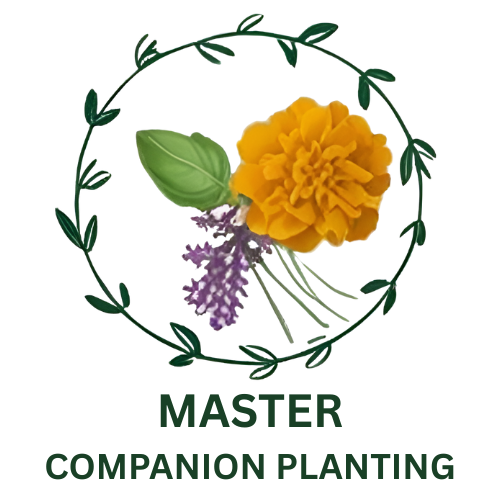Companion Plants to Naturally Repel Voles and Rabbits
Protecting your garden from pests like voles and rabbits can be challenging. While no plant offers complete protection, certain companion plants can deter these animals due to their strong scents, bitter tastes, or toxic properties. Integrating these plants into your garden not only enhances its beauty but also serves as a natural pest management strategy.
Companion Plants to Deter Rabbits

Rabbits tend to avoid plants with strong fragrances or unpalatable textures. Consider incorporating the following into your garden:
- Lavender: Known for its aromatic purple blooms, lavender repels rabbits and attracts beneficial pollinators.
- Sage and Thyme: These herbs emit strong scents that rabbits find unappealing.
- Marigolds: The pungent aroma of marigolds can deter rabbits and various insects.
- Onions and Garlic: Their strong sulfurous scent is off-putting to rabbits and many garden pests.
- Yarrow: This plant’s bitter taste and strong fragrance make it less appealing to rabbits.
- Wormwood (Artemisia): Its toxic and bitter foliage acts as a natural repellent.
Incorporating these plants can help protect vulnerable crops. For instance, planting marigolds around lettuce beds can create a barrier that rabbits are less likely to cross.
Companion Plants to Deter Voles

Voles are deterred by plants with toxic properties or strong odors. Consider these options:
Daffodils: All parts of the daffodil are toxic, making them effective at keeping voles at bay.
Fritillaria: The strong scent of fritillaria bulbs repels voles and other burrowing rodents.
Castor Bean Plant: Its roots are toxic to voles, but exercise caution as the plant is also poisonous to humans and pets.
Garlic and Onions: Their potent smell discourages voles from digging in the area.
Crown Imperial (Fritillaria imperialis): Emits a strong odor that voles find unappealing.
Planting daffodils around the perimeter of your garden can serve as a protective barrier against voles.
Additional Strategies for Pest Management
While companion planting is beneficial, combining it with other methods enhances effectiveness:
Physical Barriers: Install fencing or hardware cloth around garden beds to prevent access.
Habitat Modification: Keep the garden area tidy by removing debris and trimming grass to reduce hiding spots.
Natural Predators: Encourage the presence of predators like owls and hawks to help control vole populations.
By integrating these companion plants and strategies, you can create a garden that is both beautiful and resilient against common pests.
